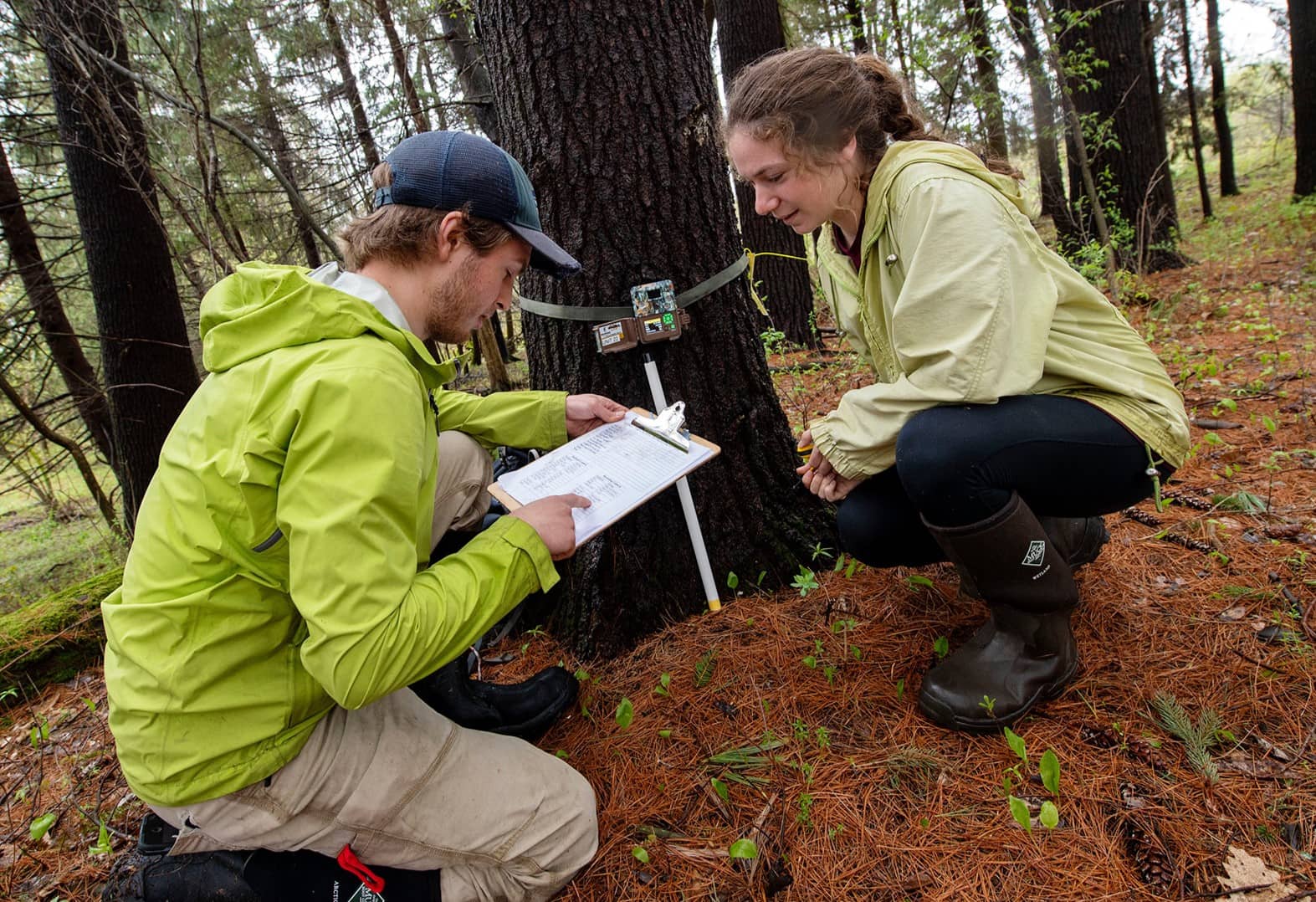
Conservation biology is a fascinating field that aims to protect and preserve our planet’s biodiversity. It combines elements of biology, ecology, genetics, and environmental science to understand and address the challenges facing our fragile ecosystems. In this article, we will explore ten intriguing facts about conservation biology, shedding light on the important work being done by scientists and researchers to ensure the survival of species, ecosystems, and ultimately, our own future on this planet. From the crucial role of keystone species to the innovative use of technology in conservation efforts, these facts will highlight the captivating world of conservation biology and inspire us to take action in protecting our natural world.
Key Takeaways:
- Conservation biology is a diverse field that combines different sciences to protect nature and prevent species extinction. It involves community engagement and cutting-edge technology to find innovative solutions for a rapidly changing world.
- Conservation biology aims to sustainably manage ecosystems for the benefit of both nature and people. It utilizes protected areas, technology, and sustainable development to preserve genetic diversity and combat climate change.
Conservation biology is a multidisciplinary field
Conservation biology combines principles from ecology, genetics, anthropology, and other fields to study the preservation and restoration of biodiversity and ecosystems. It takes a holistic approach to understand and solve environmental challenges.
The goal of conservation biology is to prevent species extinction
Conservation biologists work to identify and protect endangered species and their habitats. By implementing strategies such as captive breeding programs and habitat restoration, they aim to prevent the loss of biodiversity and ensure the long-term survival of species.
Conservation biology plays a crucial role in ecosystem services
Ecosystem services, such as pollination, water purification, and carbon sequestration, are essential for human well-being. Conservation biologists study how these services are impacted by human activities and develop strategies to sustainably manage ecosystems for the benefit of both nature and people.
Climate change poses a major challenge for conservation biology
Rising temperatures, changing precipitation patterns, and more frequent extreme weather events threaten biodiversity worldwide. Conservation biologists study the impacts of climate change on ecosystems and develop adaptation strategies to minimize the negative effects on species and habitats.
Conservation genetics helps preserve genetic diversity
Conservation genetics is a branch of conservation biology that focuses on understanding and preserving the genetic diversity within and between populations. By studying the genetic makeup of endangered species, scientists can develop effective conservation strategies and prevent inbreeding depression.
Conservation biology involves community engagement
Successful conservation initiatives involve collaboration with local communities. Conservation biologists work closely with communities to raise awareness, build capacity, and develop sustainable practices that support both conservation goals and local livelihoods.
Protected areas are key for conservation biology
Protected areas, such as national parks and wildlife reserves, play a vital role in conserving biodiversity. These areas provide safe havens for species, allow for scientific research, and promote ecotourism, which can contribute to local economies while supporting conservation efforts.
Conservation biology utilizes cutting-edge technology
Advancements in technology have greatly enhanced the field of conservation biology. Tools like satellite imagery, DNA analysis, and remote sensing enable scientists to study ecosystems at a larger scale and gain valuable insights for conservation planning and decision-making.
Conservation biology supports sustainable development
Conservation biology recognizes the importance of balancing environmental conservation with economic development. By integrating sustainable practices into industries such as agriculture, fisheries, and forestry, it aims to achieve a harmonious coexistence between humans and the natural world.
Conservation biology is an evolving and dynamic field
As our understanding of ecosystems and the impacts of human activities deepens, conservation biology continues to evolve. The field embraces new methodologies, adapts to emerging challenges, and strives to find innovative solutions for conserving biodiversity in a rapidly changing world.
Conclusion
In conclusion, conservation biology is an incredibly important field that plays a pivotal role in preserving and protecting our planet’s biodiversity. Through the application of scientific knowledge, research, and sustainable practices, conservation biologists work tirelessly to ensure the long-term survival of species and their habitats. By understanding the intricate relationships between organisms and their environment, conservation biology helps us to prevent species extinction, restore ecosystems, and promote sustainable development. From wildlife conservation to habitat restoration, this field encompasses a wide range of strategies and approaches to ensure the continued existence of diverse life forms on Earth. By supporting conservation efforts and raising awareness about the importance of biodiversity conservation, we can all contribute to the preservation of our natural world for future generations.
FAQs
1. What is conservation biology?
Conservation biology is a scientific discipline that focuses on studying, protecting, and managing Earth’s biodiversity. It involves understanding the relationships between species, their habitats, and the factors that impact their survival.
2. Why is conservation biology important?
Conservation biology is vital because it helps prevent the loss of species and ecosystems. It also promotes sustainable development, ensures the proper management of natural resources, and preserves the beauty and balance of our planet.
3. How does conservation biology contribute to species preservation?
Conservation biologists work on various fronts, including habitat protection, species reintroduction, and captive breeding programs to prevent the extinction of endangered species and promote their recovery.
4. What are the major threats to biodiversity?
The major threats to biodiversity include habitat destruction, pollution, climate change, invasive species, overexploitation, and loss of genetic diversity. Conservation biology aims to address these threats and find solutions to mitigate their impacts.
5. How can individuals contribute to conservation biology?
Individuals can contribute to conservation biology by supporting conservation organizations, practicing sustainable living, reducing their carbon footprint, promoting environmental education, and participating in citizen science projects.
6. Are there global initiatives for conservation biology?
Yes, there are global initiatives such as the Convention on Biological Diversity (CBD) and the International Union for Conservation of Nature (IUCN) that work towards the protection and conservation of biodiversity on a global scale.
7. How does conservation biology address the impact of climate change?
Conservation biology acknowledges the significant role of climate change in biodiversity loss and works towards understanding its effects on ecosystems and species. It also advocates for sustainable solutions to mitigate climate change and its impacts on biodiversity.
8. Can conservation biology help restore damaged ecosystems?
Yes, conservation biology includes techniques such as habitat restoration, reforestation, and ecological restoration, which aim to repair and rehabilitate damaged ecosystems and bring back their natural functions and biodiversity.
9. Is conservation biology only focused on protecting animals?
No, conservation biology encompasses the protection of all forms of life, including plants, animals, fungi, and microorganisms. It recognizes the interconnectedness of species and their habitats.
10. What are the career opportunities in conservation biology?
There are various career opportunities in conservation biology, including working as a conservation scientist, wildlife biologist, environmental consultant, park ranger, conservation educator, or researcher in government agencies, non-profit organizations, research institutions, and academia.
Conservation biology's captivating facts merely scratch the surface of scientific wonders. Delving deeper into molecular markers reveals their critical role in understanding genetic diversity and population dynamics. Bottleneck effects, often overlooked, hold the key to comprehending the vulnerability of small populations and the importance of genetic variation. Explore these topics further to gain a more comprehensive understanding of the intricate web of life and the challenges faced in preserving our planet's precious biodiversity.
Was this page helpful?
Our commitment to delivering trustworthy and engaging content is at the heart of what we do. Each fact on our site is contributed by real users like you, bringing a wealth of diverse insights and information. To ensure the highest standards of accuracy and reliability, our dedicated editors meticulously review each submission. This process guarantees that the facts we share are not only fascinating but also credible. Trust in our commitment to quality and authenticity as you explore and learn with us.


